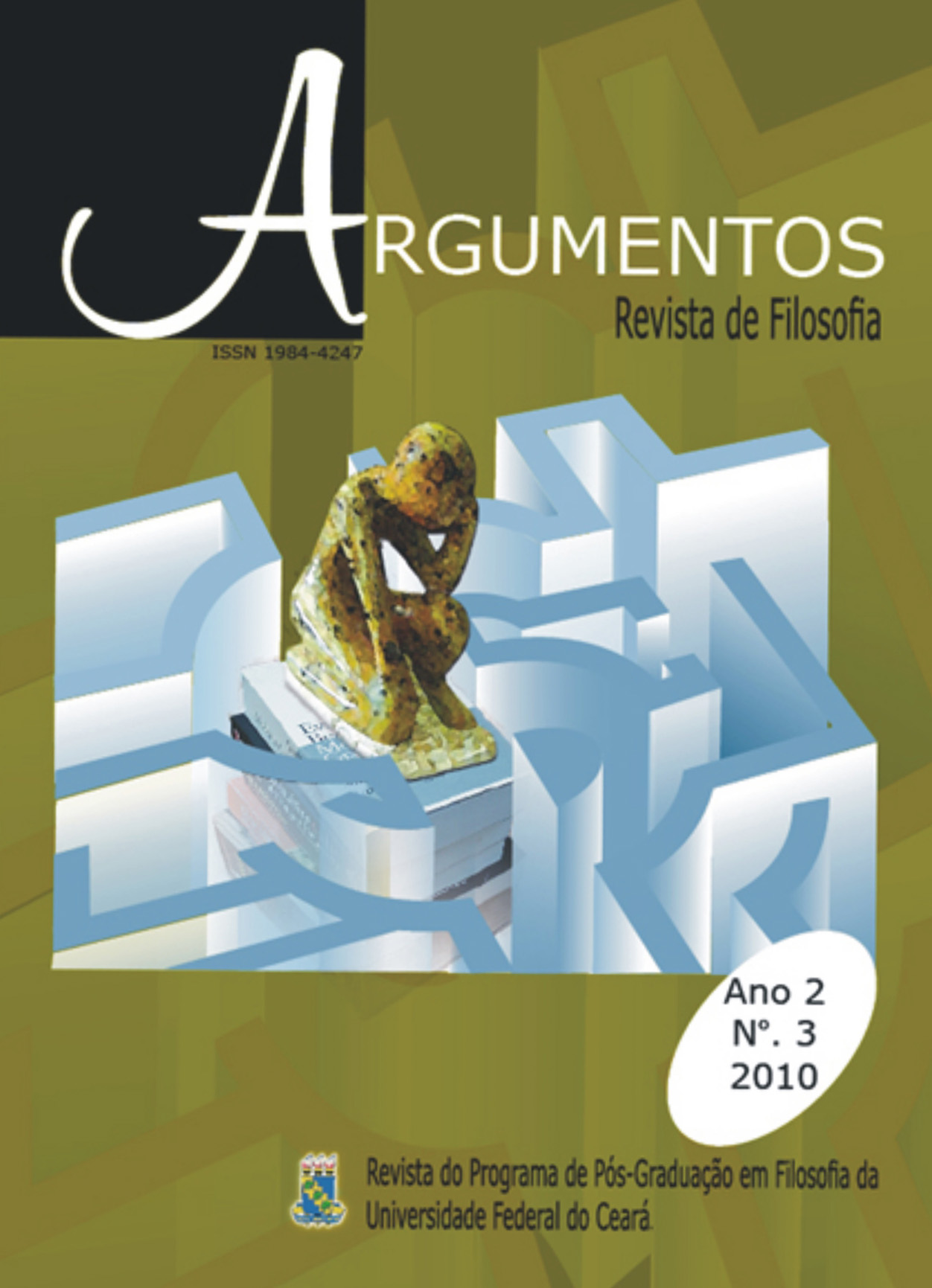Metaphysics and morality in Schopenhauer and Kant
Keywords:
Thing in itself. Freedom. Determinism. Kant. Schopenhauer.Abstract
The concept of thing in itself as propounded by Kant “works” as the only argument in order to give support to modern science and open way to a free will. Such a concept, however, was considered illegitimate, and the aporias that were aroused by it were seen as absence of philosophical fundament whose validation was therefore a quest of German idealism in its search of a subjectivity that was conceived within a philosophy of immanence. The empirical realism was maintained precisely by the concept of thing in itself, a concept whose dissolution would mean the loss of the transcendental dimension that both Kant and Schopenhauer want to preserve. This concept has the twofold interest of Kant: besides limiting the scientific knowledge to the notion of phenomenon, the thing in itself leaves room for considering a free will, that is, makes room for a moral consideration of the world. Now, when Schopenhauer explains the notion of will as the thing in itself (and not the subject), he relies on the ambiguous concept for the same goal sought by Kant: to make room for morality. The difference is the type of morality that one tries to justify: for Kant, the Judeo-Christian moral as reached by a Lutheran deflected route, to which free will is conditio sine qua non. In the case of Schopenhauer, the Hindu-Buddhist morality, which propounds freedom as the karmic nullification by denying will itself.Downloads
Published
Issue
Section
License
Argumentos magazine is licensed under an International Creative Commons Attribution License.
The Magazine uses CC BY inclusion
1) The authors retain the copyright granted to the magazine or the right to initial publication, with the work regularly licensed under the Creative Commons Attribution, which allows the sharing of the work with acknowledgment of authorship and initial publication in this magazine.
2) The authors are authorized to contract additional applicable contracts, for non-exclusive distribution of the version of the work published in this journal (for example, publication in the institutional repository or as a chapter of the book), recognition of authorship and initial publication in this journal.
3) Authors are authorized and encourage to publish and distribute their work online (for example, in institutional repositories or on their personal pages) at any time before or during the editorial process, as they can generate productive changes, as well as increase the impact and reference of published work.




.jpg)










._._3.png)
1.jpg)
._._._.png)
